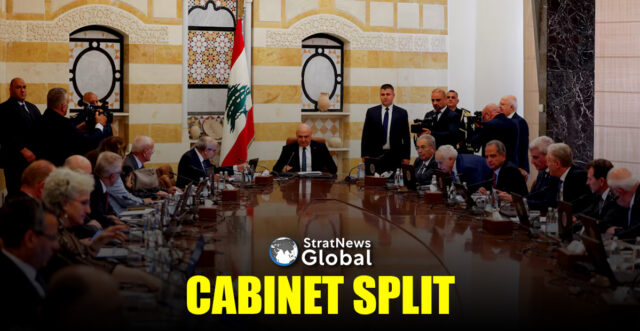On Friday, Lebanon’s cabinet welcomed a plan put forward by the army to disarm Hezbollah, announcing that the military would begin implementing it. However, no timeline was set for its execution, with the government cautioning that the army’s capabilities remain limited.
A national divide over Hezbollah’s disarmament has taken centre stage in Lebanon since last year’s devastating war with Israel, which upended a power balance long dominated by the Iran-backed Shi’ite Muslim group.
Hezbollah Not Keen
The US and Saudi Arabia, along with Hezbollah’s primarily Christian and Sunni opponents in Lebanon, have ramped up calls for the group to give up arms.
But Hezbollah has pushed back, saying it would be a serious misstep to even discuss disarmament while Israel continues its air strikes on Lebanon and occupies swathes of territory in the south. Four people were killed in Israeli strikes on Wednesday.
Conflict Within Cabinet
On Friday, Lebanon’s cabinet met for three hours, which included the plan’s presentation by army commander Rodolphe Haykal.
All five Shi’ite cabinet ministers left the session in protest once Haykal entered the room.
Lebanese information minister Paul Morcos told reporters after the session that the government welcomed the plan but stopped short of saying the cabinet had formally passed it.
He said the army would begin implementing the plan according to its “limited” logistical, material and personnel capabilities, which might require “additional time (and) additional effort”.
Isreal Urged To Show Commitment
Haykal had briefed ministers on the “limitations” facing the army, chief of which were Israel’s continued strikes on Lebanese territory, Morcos told reporters.
He said that Israel had not yet shown any commitment to a US roadmap aimed at disarming Hezbollah in exchange for a halt to Israeli military operations in Lebanon, and which the cabinet approved last month.
“Accordingly, Lebanon clarifies that any progress towards implementing the paper remains contingent upon the commitment of the other parties, primarily Israel,” Morcos said.
Israel last week signalled it would scale back its military presence in southern Lebanon if the army took action to disarm Hezbollah.
He said the details of the army’s plan would remain secret.
Complex Situation
Hezbollah-aligned Labor Minister Mohammad Haidar told local media before the cabinet’s session had concluded that any decision taken in the absence of Shi’ite ministers would be null and void as it would be considered in contravention of Lebanon’s sectarian power-sharing system.
Hezbollah Secretary General Naim Qassem last month raised the spectre of civil war, warning the government against trying to confront the group and saying street protests were possible.
Army troops deployed to parts of Beirut on Friday evening as a precautionary step in case any street protests linked to the decision turned unruly.
The army, drawn from Lebanon’s mosaic of religious groups, split along sectarian lines at the start of the 1975-90 civil war, and has been widely regarded as the guarantor of civil peace since being rebuilt after that conflict.
(With inputs from Reuters)





